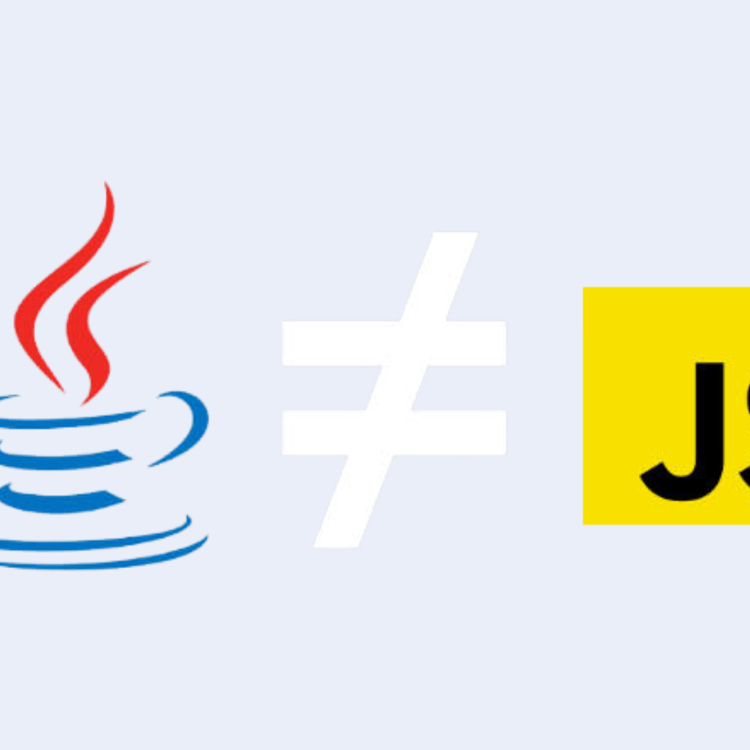Java and JavaScript are two of the most popular programming languages in the world. They both have their pros and cons, but which one should you learn? In this blog post, we’ll compare Java and JavaScript to help you decide which language best fits you.
Javascript is a versatile scripting language that enables developers to create dynamic and interactive web applications. It is widely used across the internet and is supported by all major browsers. Javascript is easy to learn, and its syntax is similar to other programming languages, such as Java and C++. In addition, Javascript can be used to create mobile apps and desktop applications. As a result, it is an essential tool for any web developer.
Java is a versatile and powerful programming language that enables developers to create robust, high-performance applications. Java is platform-independent, meaning that it can be run on any operating system, and it is also capable of running on multiple devices. In addition, Java is one of the most secure programming languages, making it ideal for developing financial or other sensitive applications. Despite its many advantages, Java has been criticized for being a verbose language, meaning it takes more code to accomplish tasks than other languages. Nevertheless, Java remains a popular choice for application development due partly to its versatile nature and wide range of features.
Table of Contents
What Are the Similarities Between Java and Javascript?
Java and JavaScript are two of the most popular programming languages in the world. Though they share a common heritage, these two languages have evolved in different ways to meet the needs of different audiences. However, there are also several similarities between them, which can confuse developers who are new to both languages.
One of the most obvious similarities between java and javascript is that they both have a C-like syntax. They share many basic constructs, including variables, data types, control structures, and functions. This similarity can be both a boon and a curse for developers. On the one hand, it makes it easier to learn both languages if you already know one of them. On the other hand, it can also lead to confusion when two languages use different terminology for the same concept.
Java and JavaScript also both play essential roles in web development. Both languages can be used on the server side to create dynamic web pages. And both languages can be used on the client side to create interactive web applications. However, each language has its strengths and weaknesses in web development. Java is typically used for more complex applications, while JavaScript is more suited for simple scripts or adding interactivity to existing pages.
Though they share many common features, java and javascript are two very different programming languages. However, understanding their similarities is essential for any developer who wants to work with both languages.

What’s the Difference Between Javascript and Java?
There is a lot of confusion around the difference between Java and JavaScript, as the two programming languages are similar. Java and JavaScript are object-oriented, meaning they can be used to create complex applications with various objects interacting. However, there are some key distinctions between the two languages.
Java is a compiled language, meaning it is converted into machine code before running. This makes Java programs very fast and efficient. On the other hand, JavaScript is an interpreted language, meaning it runs directly in the browser without being compiled first. This makes JavaScript programs more flexible and easier to change, but also generally slower than Java programs.
Another key difference is that Java code must be written in strict syntax, while JavaScript code can be looser and more forgiving. This makes java programs more reliable but also more challenging to write. Ultimately, the choice of programming language depends on the project’s specific requirements. If speed and efficiency are paramount, then Java is the better choice. If flexibility and ease of development are more critical, then JavaScript may be the better option.
What’s the Difference Between Scripting and Programming Languages?
When it comes to coding, there are two main types of languages: scripting and programming. Scripting languages are designed to automate tasks and are usually used in web development. On the other hand, programming languages are more powerful and can be used to create complex applications.
The main difference between these two languages is that scripting languages are interpreted while programming languages are compiled. This means scripting languages don’t need to be converted into machine code before they can be run, making them faster and easier to use. However, it also means that scripting languages are less powerful than programming languages. As a result, most software applications are written in programming languages.
Is it Easier to Learn Java or Javascript?
When it comes to programming languages, there are many options to choose from. However, two of the most popular choices are Java and JavaScript. So, which one is easier to learn?
Overall, JavaScript is a more beginner-friendly language. This is because it is relatively simple and doesn’t require a lot of setups. All you need is a text editor and a browser, and you’re good to go. In contrast, Java requires a bit more setup. You need to install the Java Development Kit (JDK) before you can start coding.
Additionally, Java is a more complex language with more stringent syntax rules. As a result, it can take longer to learn all the ins and outs of the language. However, once you’ve mastered Java, you’ll have a powerful tool at your disposal. So, while JavaScript may be easier to learn initially, Java can be worth the extra effort in the long run.

How to Choose the Best Language for Your Project?
When choosing a programming language, there are a few things to consider. For example, what do you want to develop? If you’re interested in web development, JavaScript is generally the best choice. On the other hand, if you’re more interested in developing Android apps, then Java would be a better option.
There are also differences in how easy the languages are to learn. In general, Java is considered to be a bit more challenging to learn than JavaScript. However, both languages have a large community of developers and plenty of resources available to help you get started. Ultimately, the best language for you is the one that best aligns with your goals and interests.

What are the 3 Java platform components?
Java Virtual Machine
The Java Development Kit (JDK) is a software package that enables developers to create Java-based applications. It includes a compiler, a debugger, and an interpreter, as well as a set of libraries and other tools. The JDK is available for several different platforms, including Windows, Linux, and Mac OS X. While the JDK is not required to develop Java applications, it is generally recommended for most projects.
In addition, many IDEs (Integrated Development Environments) include the JDK as part of their default installation. The JDK can be an invaluable resource for developers who are just starting with Java. By providing everything needed to develop Java applications in one place, the JDK makes it possible to get started quickly and easily.
Java Virtual Machine (JVM)
The Java virtual machine is a vital part of the Java platform. It is the component that provides the portable execution environment in which Java bytecode can be run. The JVM specification defines the structure and behavior of a virtual machine that runs Java bytecode. A wide range of software platforms uses a Java virtual machine to enable the running of Java-based applications. Because each platform uses its underlying hardware architecture, a virtual machine removes the differences between these architectures, allowing a Java application to run on any platform with a suitable JVM implementation. This portability is one of the major reasons for the popularity of Java as a programming language. Without the Java virtual machine, Java would not be near as widely used as it is today.
Java Runtime Environment (JRE)
Java Runtime Environment (JRE) is the software that runs Java programs. It provides all the necessary resources to run a Java program on any operating system. JRE is platform-independent and comes bundled with the Java Development Kit (JDK). JDK contains tools and libraries to develop Java software. JRE only contains the files required to run a Java program.
The Java Runtime Environment is responsible for making sure that your Java program runs smoothly on any machine without you having to worry about platform dependencies or security concerns.

Conclusion
Java and JavaScript are two very different programming languages. While they have some similarities, Java is a more robust language that can be used for larger projects, while JavaScript is better suited for smaller projects or front-end development. If you’re new to programming, we recommend starting with JavaScript to get comfortable with the basics before moving on to a more difficult language like Java.

















